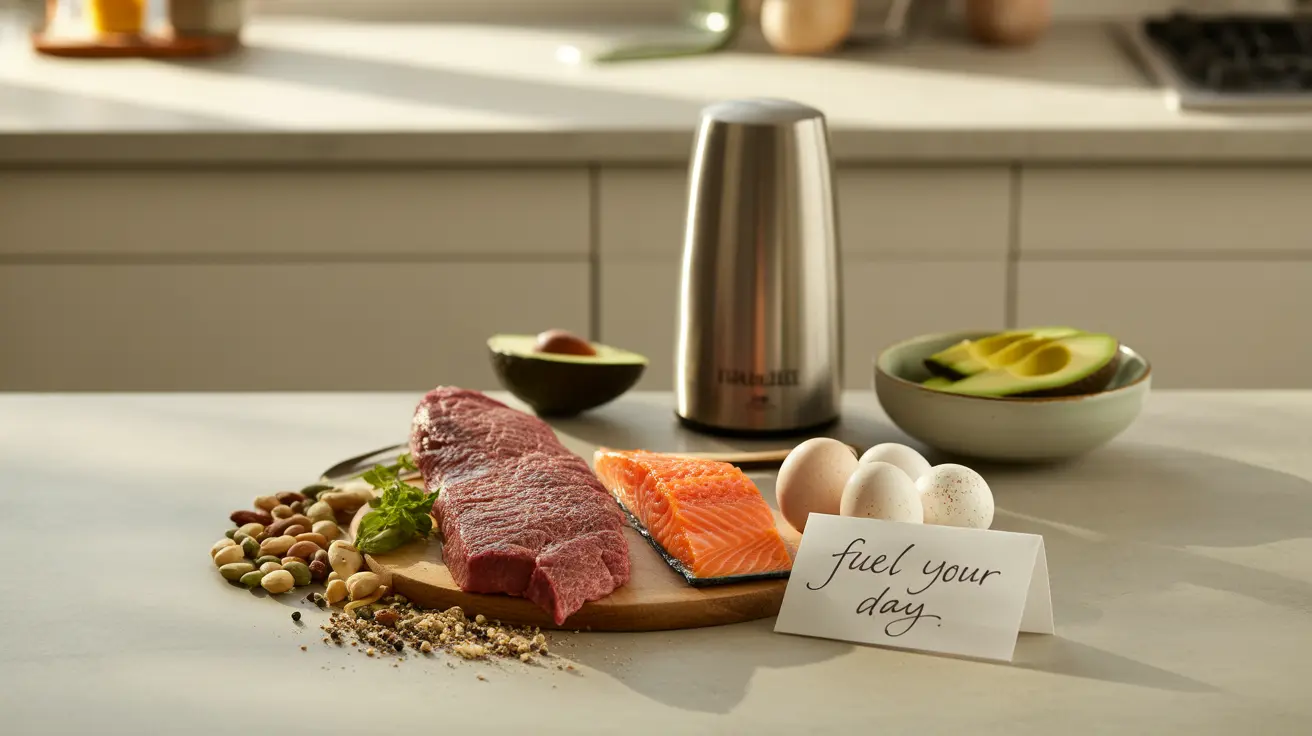Following a paleo diet while ensuring adequate protein intake doesn't have to be complicated or boring. With the right knowledge and recipes, you can create delicious paleo high protein meals that support your fitness goals while staying true to ancestral eating principles.
In this comprehensive guide, we'll explore how to craft satisfying, protein-rich paleo meals, understand optimal protein requirements, and discover the best paleo-friendly protein sources for maintaining muscle and energy levels.
Essential Paleo Protein Sources
The paleo diet emphasizes whole, unprocessed foods that our ancestors would have had access to. Here are the best protein sources that align with paleo principles:
- Grass-fed meat (beef, bison, lamb)
- Wild-caught fish (salmon, mackerel, sardines)
- Free-range poultry (chicken, turkey, duck)
- Game meats (venison, elk, rabbit)
- Eggs from pasture-raised chickens
- Nuts and seeds (in moderation)
Creating Balanced Paleo High Protein Meals
Breakfast Options
Start your day strong with these protein-packed paleo breakfast ideas:
- Sweet potato hash with ground beef and eggs
- Salmon and avocado breakfast bowl
- Turkey and vegetable frittata
- Chia seed pudding with nuts and berries
Lunch and Dinner Ideas
Keep your energy levels stable throughout the day with these satisfying options:
- Grilled chicken breast with roasted vegetables
- Grass-fed beef stir-fry with cauliflower rice
- Baked fish with Mediterranean herbs and vegetables
- Buffalo meat balls with zucchini noodles
Optimizing Protein Intake on Paleo
The ideal protein intake varies based on individual factors such as activity level, body composition goals, and overall health status. Generally, aim for 0.8-1.2 grams of protein per pound of body weight when actively building muscle or maintaining lean mass while following a paleo diet.
Meal Prep and Planning Strategies
Success with paleo high protein meals often comes down to preparation. Consider these strategies:
- Batch cook proteins on weekends
- Keep pre-cut vegetables ready
- Store properly portioned meals
- Always have emergency protein options available
Frequently Asked Questions
- What are some easy and delicious paleo high protein meals I can make at home?
Easy paleo high protein meals include egg and vegetable scrambles, grilled chicken with roasted vegetables, beef and sweet potato bowls, and tuna salad wrapped in lettuce leaves. These meals can be prepared in under 30 minutes and provide excellent protein content while maintaining paleo principles.
- How much protein should I aim to eat on a paleo diet for muscle maintenance and weight loss?
For muscle maintenance and weight loss on a paleo diet, aim for 0.8-1.2 grams of protein per pound of body weight. For example, a 150-pound person should consume between 120-180 grams of protein daily, spread across multiple meals.
- What are the best paleo-friendly protein sources that are grain- and dairy-free?
The best paleo-friendly protein sources include grass-fed meats, wild-caught fish, free-range poultry, eggs, and nuts/seeds. These options provide complete protein profiles while adhering to paleo guidelines of avoiding grains and dairy.
- Can high protein paleo meals help improve energy levels and support workout recovery?
Yes, high protein paleo meals can significantly improve energy levels and support workout recovery. The combination of quality proteins and nutrient-dense vegetables provides essential amino acids for muscle repair and sustained energy throughout the day.
- How do paleo high protein meals compare to vegetarian or vegan options in terms of protein content?
Paleo high protein meals typically contain more protein per serving than vegetarian or vegan options. For example, a 6-oz serving of grass-fed beef provides about 42g of protein, while a comparable serving of plant-based proteins like lentils offers around 18g. However, both approaches can meet protein needs when properly planned.




